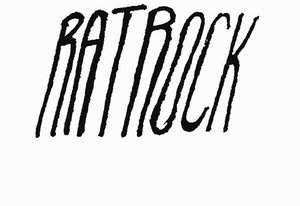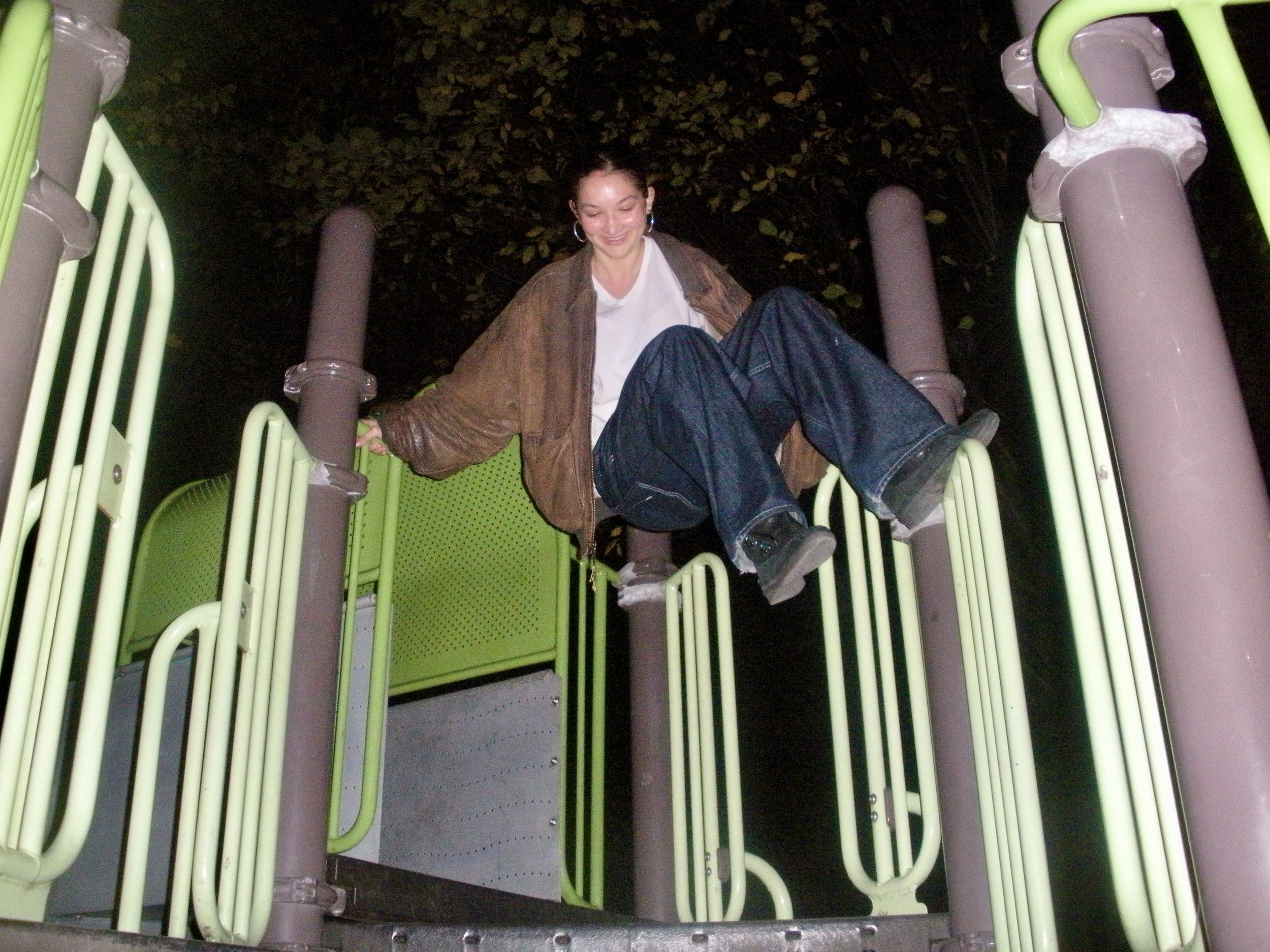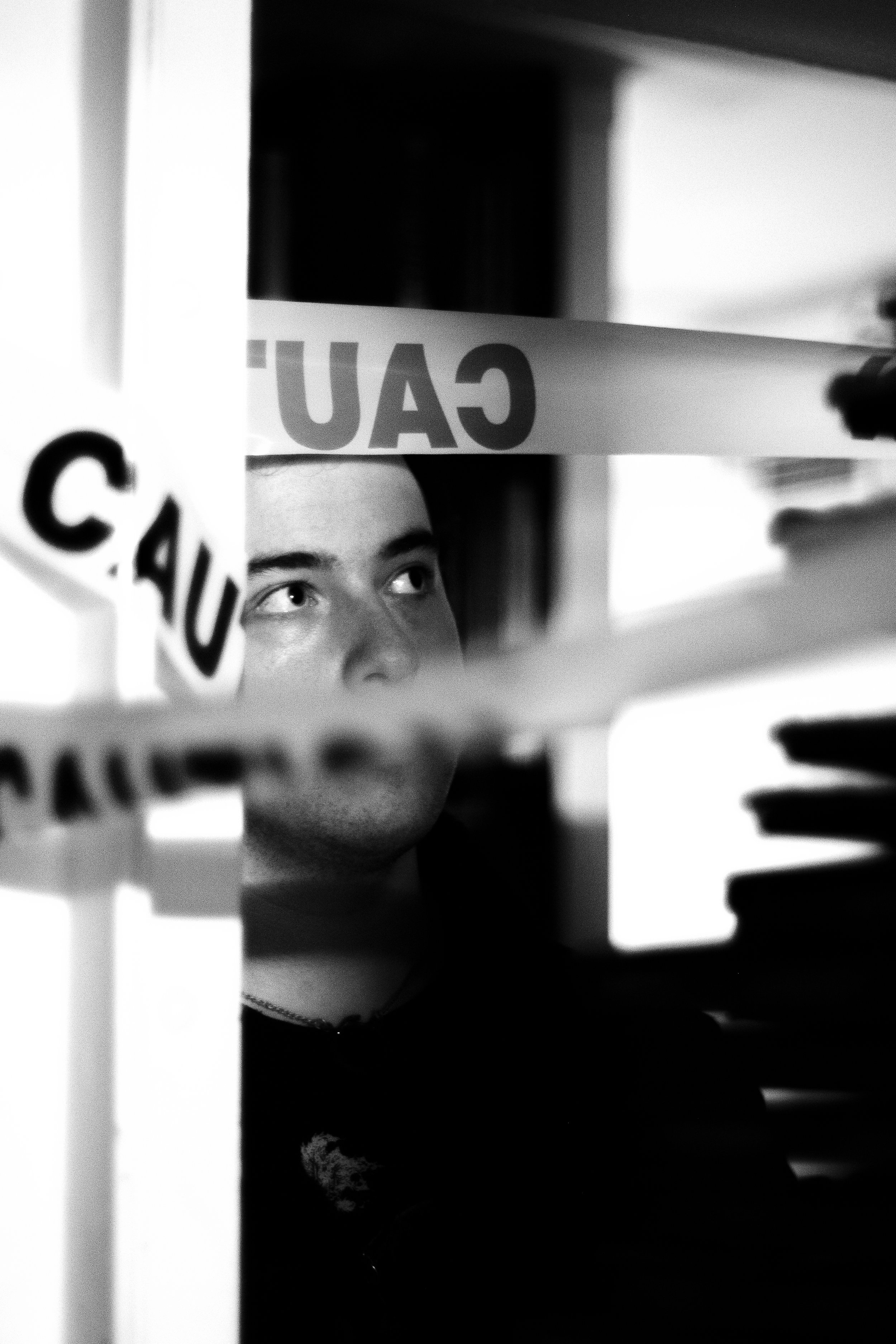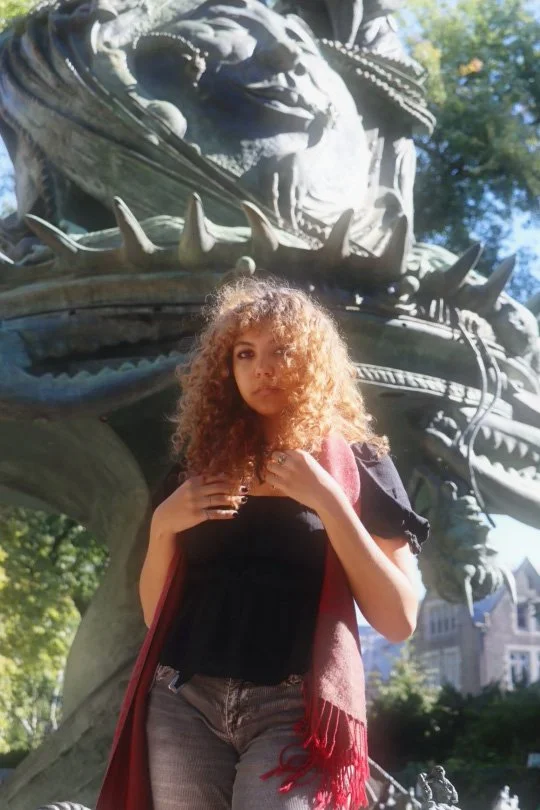

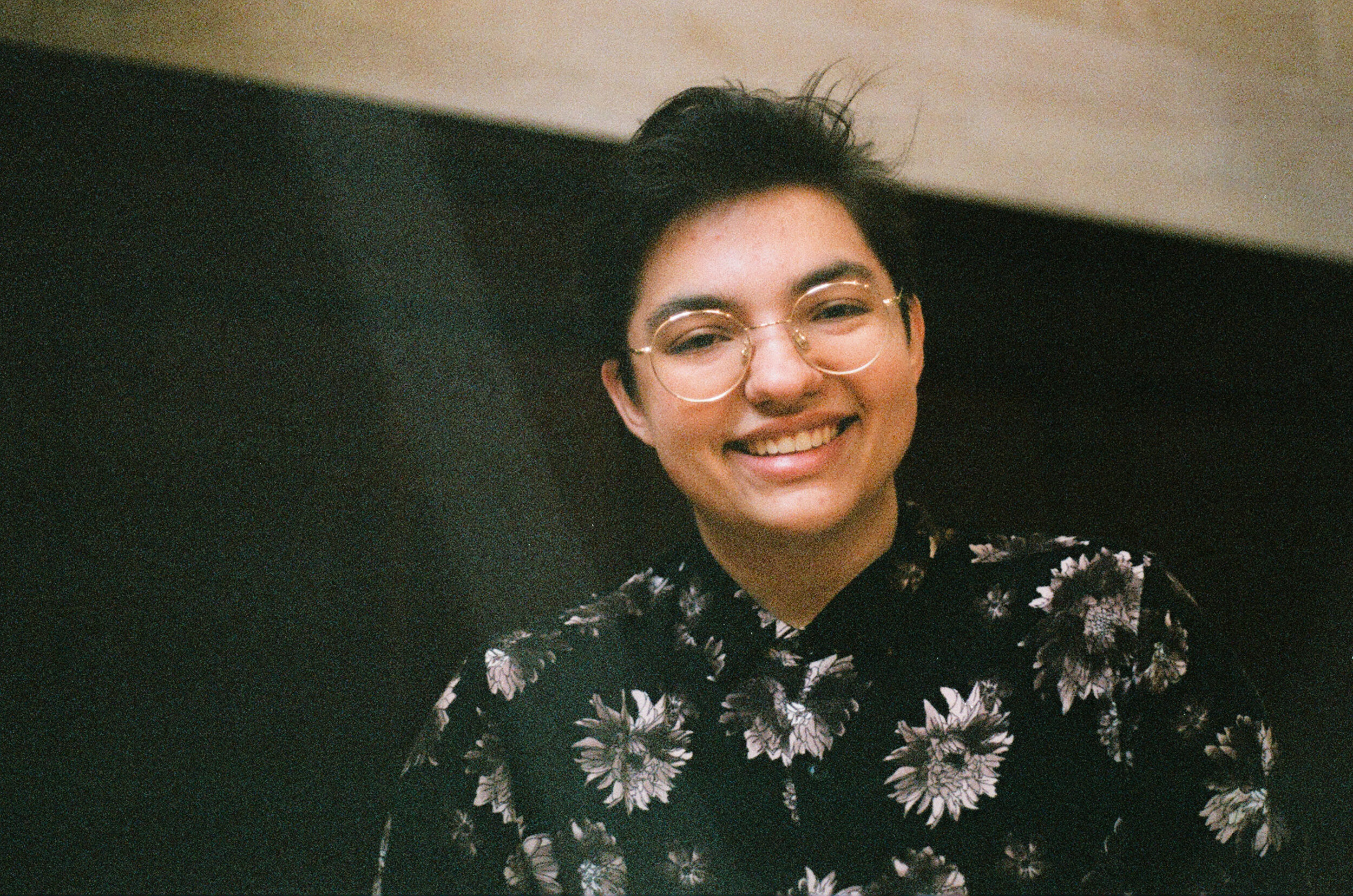
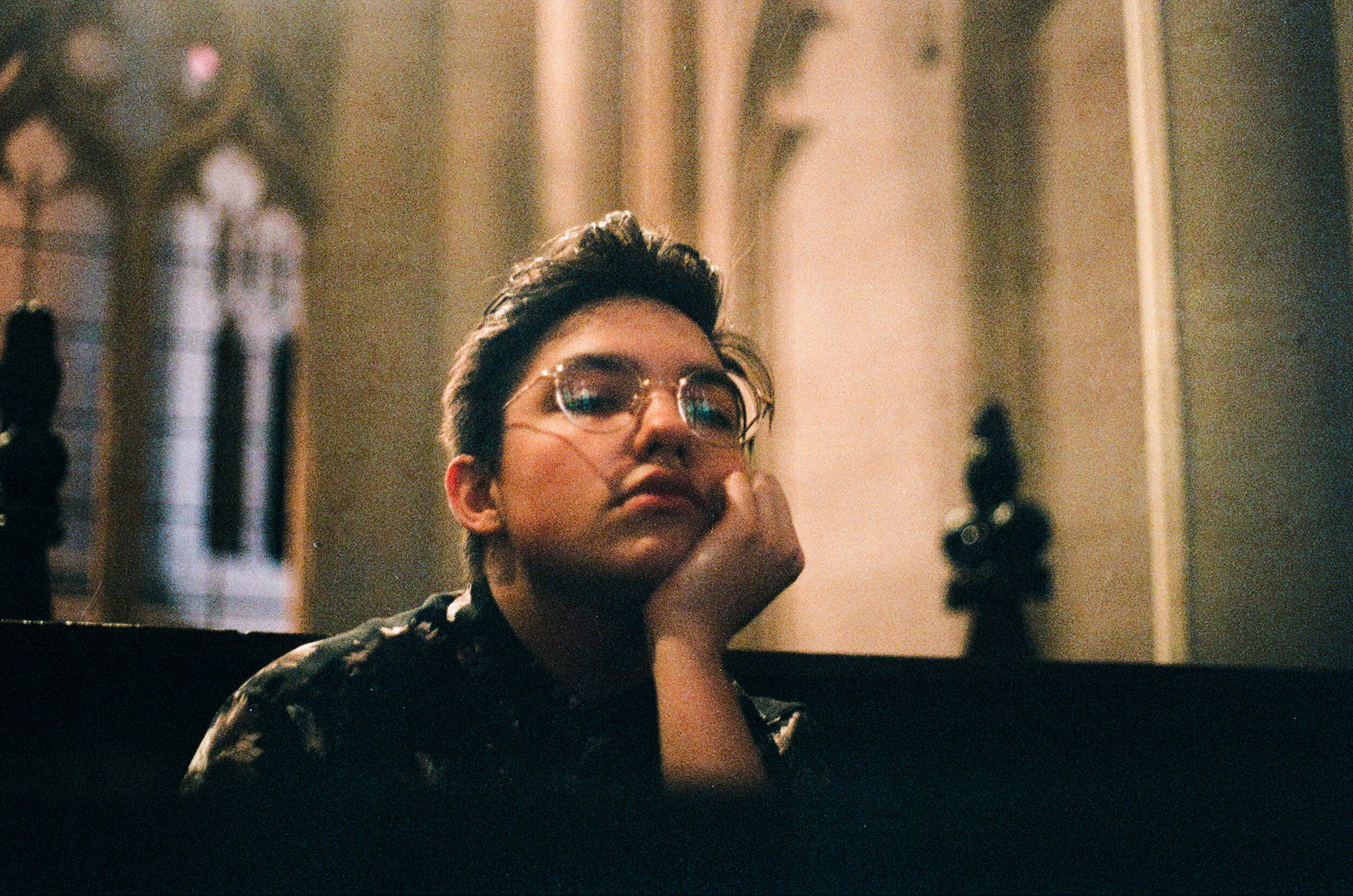
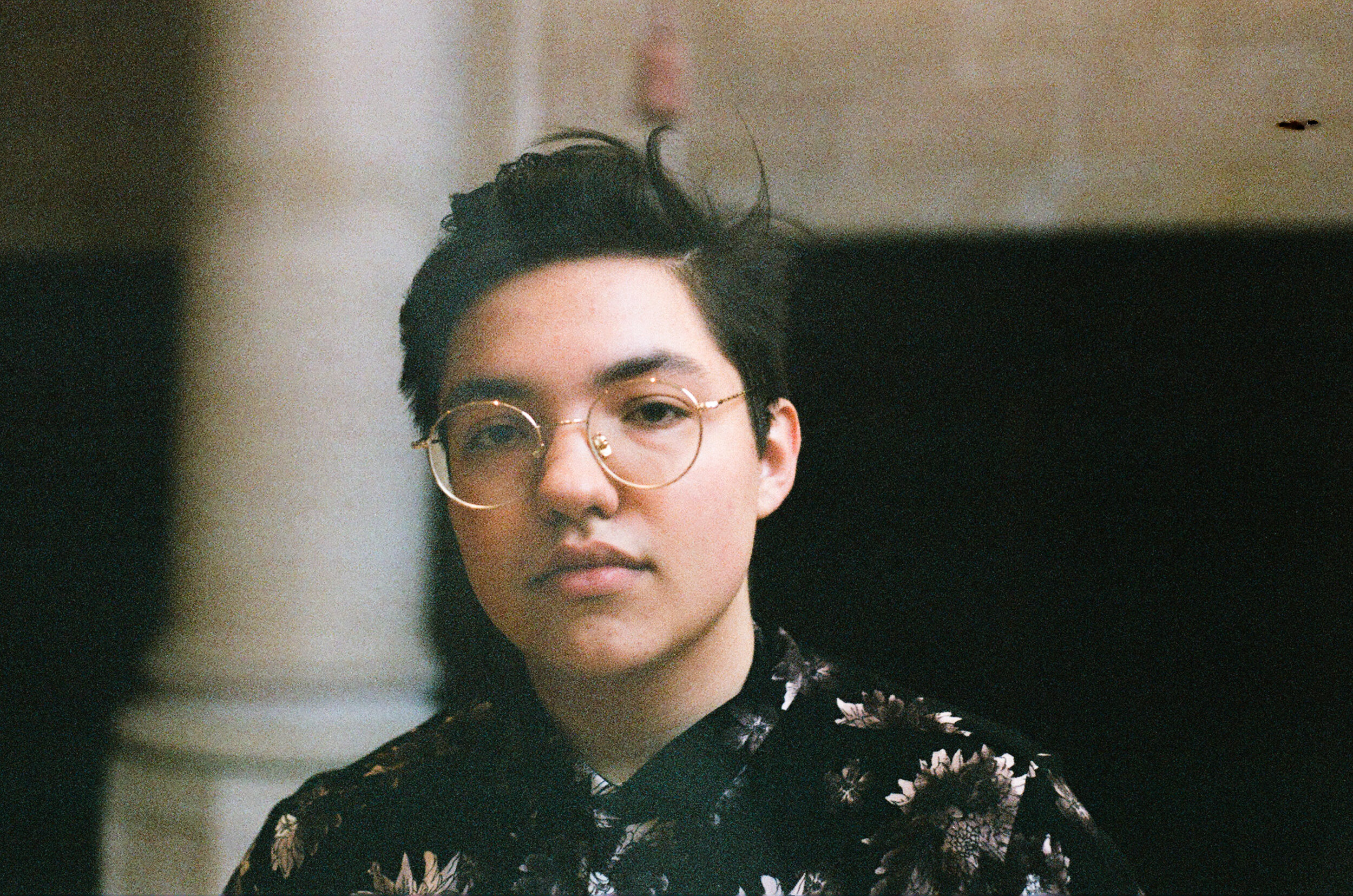
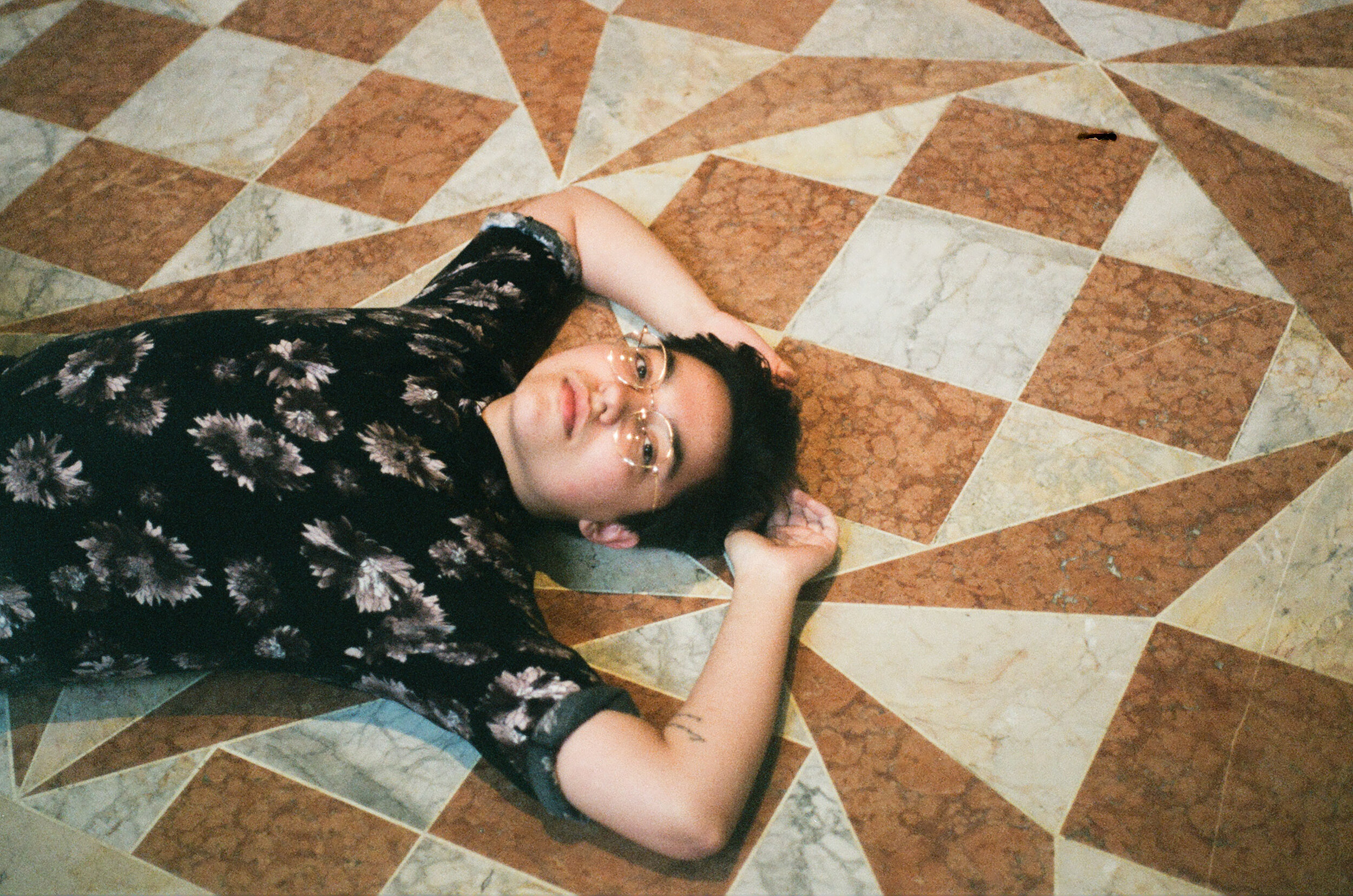
Photographs by Eliza Jouin
In conversation with Yosan Alemu
Charlie Blodnieks is a Junior at Columbia College studying English. They are also on the Columbia/Barnard slam poetry team, the Editor in Chief of Quarto Magazine, and they really love the Bee Movie.
What is your writing process like and how does it differ from other creative mediums, especially in relation to your visual work? So how is writing visual?
Those are good questions. I think my writing process is sporadic. Before I became more developed as a poet, I used to just write out all of my feelings, sort of like a frantic emotional process without really editing or tending to the pieces beyond that point. And it’s not to say that’s necessarily a bad thing, but I’m glad I’m moving towards really defining and refining my craft in terms of careful editing.
And when I’m editing, I think about the audience, about the performance of the piece—if there will be one—and I want to always be mindful about my work, for me and for the reader. I want to be responsible, and make poetry that is responsible. Being on the slam poetry team and editing for Quarto, a literature magazine, has really helped me in terms of reading, and looking at the ways in which the reading process of both author and reader is just as crucial as the writing process itself. I've been writing a lot recently on mental health and particularly writing about sexual violence and survivorship. And I am always thinking about the way those works need to be written and read about in responsible ways. I want to use writing as an artistic space for healing, but also for advocacy, and the practice of poetry and editing is one way to do this.
How do you think writing can be visual?
Poetry is visual! Especially in my written poetry, I care a lot about spacing and how the words look a certain way on a blank piece of paper. I want to take up space purposefully, and I want the spaces to be created in meaningful ways.
Do you edit your visual work?
I actually don’t edit my visual work. I usually upload a visual piece to photoshop once I’ve physically made it, and I literally splice the image and rearrange it. If you consider that editing, I guess it is! The piece I submitted to Ratrock is super rearranged, and it’s sourced from three pages of random sketchbook lines. In terms of actual visual work, I care more about how I am feeling and [how I] use the visual medium as an outlet. It’s more fun. I think I take my poetry more seriously and that is why I’m editing a piece for months at a time, while my visual pieces can be completed quickly.
Reading over the work you submitted to Ratrock, I really loved your “Psalm For God's Mother” piece [originally published in Muzzle magazine]. If you would like to share, what inspired you to write it? How did you write it? Why?
The poem was actually my individual CUPSI poem from last year. So CUPSI is the College Union's Poetry Slam Invitational that the Barnard/Columbia slam team goes to every year. That poem was initially three minutes, and I performed it with other members on the team. My best friend Taylor Thompson was singing Moses Sumney’s “Plastic” while I performed the piece. I think that poem has a lot to do with the specific moments of my transition last year, which was around this exact time actually. I had just come out to my family as trans, and I just started requesting people use my correct pronouns. That was really, for me, coming into my own moment, my own self. I was thinking a lot about space, and how to request and demand space for yourself. A large part of the poem also got me attached to Icarus imagery, of flying too close to the sun, especially in terms of space and proximity. I’m always really anxious about taking up too much space, and I felt very uncomfortable with asserting my gender identity and my transness—I had a lot of complicated feelings about it. I still do. The poem also dealt with my relationship with my family, and me announcing to them and the world that I can do these things on my own, I can transition on my own, I can do it myself. Even though there is a lot of sadness to it, there is also some power hidden within it. It might be quiet, but still deeply comforting.
When you were talking about Icarus and flying too close to the sun, that reminded me of your other visual works that depicted flight and movement in the form of birds. Could you explain that a little more?
I actually haven't thought deeply about the question of “Why birds?” It does come up a lot, and I do think it has to do with flight and escaping, of freely moving and not wanting to be bound by fear and by the world at large.
You also have mentioned the slam poetry team a few times. How is that like?
Slam poetry. Oh boy. I love the slam poetry team. That is where I met the bulk of my friends, and that is also where I met my partner. It is definitely the most loving space I have ever been in on campus, and the team means so much to me. So, so much. The team has been so formative in part for my writing but also about collaborating together as a team. I think this is the first place that I've really learned how to have loving friendships and to have loving work within those friendships. Thinking about the power of caring and caring about other people, and what that can do for us, I have found everyone on the team to be that caring and careful, of always helping and wanting the best for each other, and always deeply loving one another.
When you’re performing a piece for the slam poetry team, how do aspects of body-ship and space production factor into the performance?
In one of the pieces that we are performing for, it deals a lot with the body and of taking up space, of moving in and out of frames. The goal of the poem is to reckon with the fact that despite how much I want to obscure my body and imaging all I want, I am a person in a body. And then at the end of the piece, I thank all of the people who have impacted my life and my perception of life. I thank Taylor, and Asha, and others, and I feel like the end of the piece really is rooted in this collective power of being held, and of holding others.
